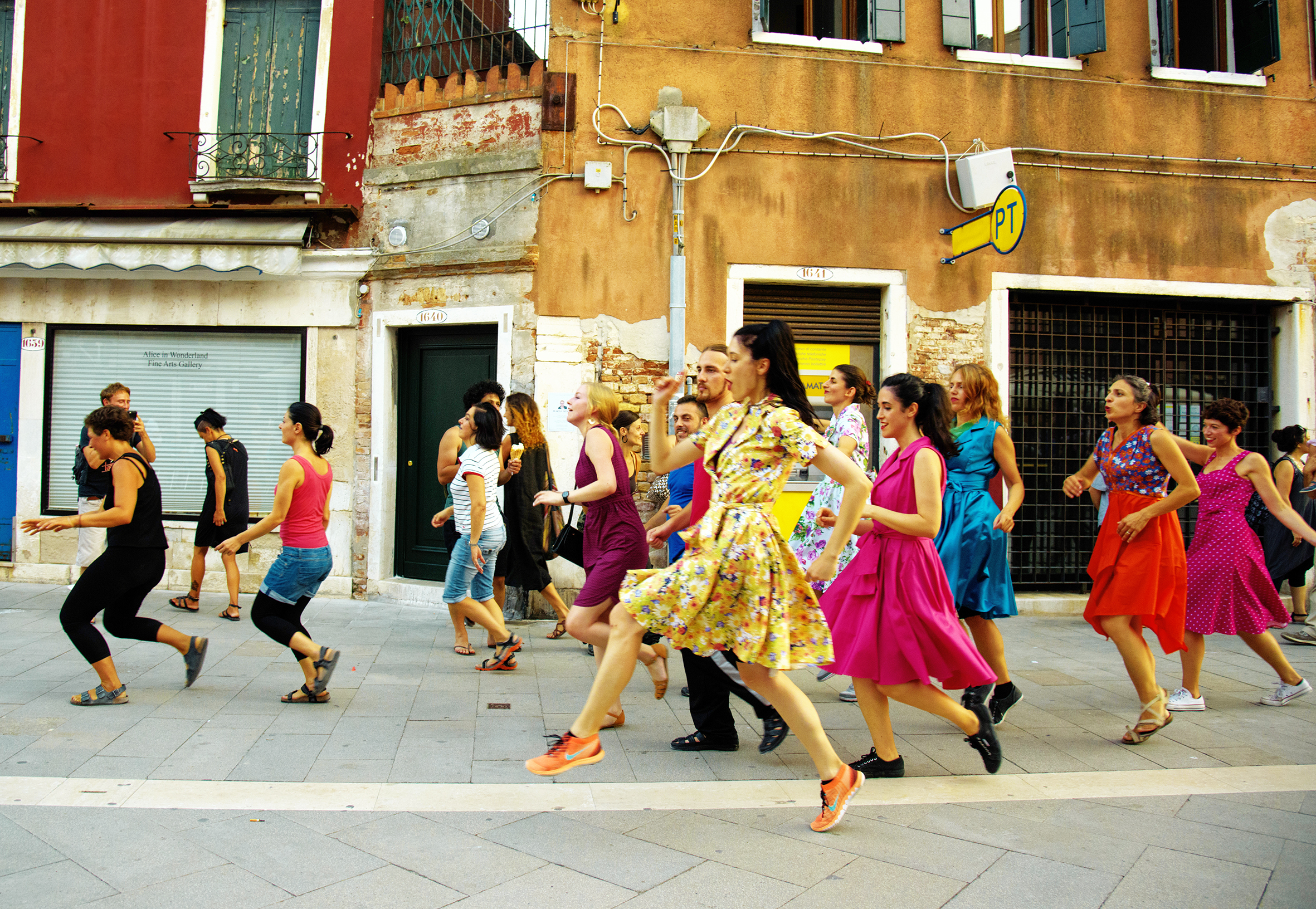#OnPedagogy: Marinella Senatore presenting The School of Narrative Dance

Marinella Senatore presents The School of Narrative Dance in the frame of the program On Pedagogy at erg.
In 2013 Marinella Senatore founded The School of Narrative Dance, focused on the idea of storytelling as an experience that can be explored choreographically, on non-hierachical learning, self-training and the creation of an active citizenship through informal education. Nomadic and free of charge, the School takes different forms depending on the spaces it temporarily occupies, and proposes an alternative system of education, based on emancipation, inclusion, and self-cultivation. The School offeres a wide range of classes in subjects such as literature, oral history, carpentry, art history, crafts, photography, arithmetic, drama, choreography, cinematic language, etc., encouraging individuals to share their skills or achieve new ones, building new groups and ideas of community. To date, the School‘s projects – produced by Istitutions, Museums and Foundations – have been developed in several countries in Europe and US, with the involvement of political activists, scholars, artisans, illiterate people, students, housewifes, musicians, writers, worker unions, retireds, teachers, feminist choirs and Alpines. The work uses dance as a common language through which to celebrate the vernacular, amateur, and professionally trained gestures of the participants.
The Jammin’ Drama Project by Marinella Senatore has been shortlisted for the 2011 VisibleAward.
Marinella Senatore is trained in music, fine arts and film, her practice is characterized by public participation, initiating a dialogue between history, culture and social structures. Rethinking the role of the artist as author and the public as recipient, Senatore’s work merges forms of protest, learning theatre, oral histories, vernacular forms, protest dance and music, public ceremonies, civil rituals and mass events, reflecting on the political nature of collective formations and their impact on the social history of places and communities.



